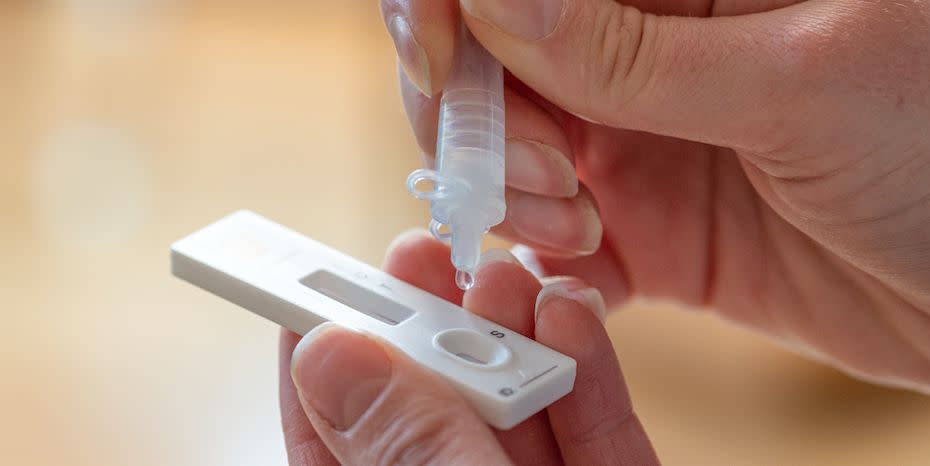What you need to know about the 'Centaurus' COVID-19 variant

The heatwave that's taken over the UK has been dominating headlines as of late, pushing thoughts of the coronavirus pandemic to the very back of our minds. But, despite the sweltering temperatures, COVID-19 is not over and cases in the UK are on the rise due to the latest sub-variant: Centaurus.
Although not a new variant – cases were first detected in India back in May and have since been found in Germany, Japan, Australia, Canada and the US – Centaurus is spreading fast, but the World Health Organisation's chief scientist, Dr Soumya Swaminathan, says we don’t have enough data yet to know how severe its impact will be. So, what do we know about the Centaurus sub-variant?
How many COVID-19 cases in the UK right now?
Figures from the Office of National Statistics (ONS) revealed that cases increased by 29% across the UK in the week ending 6 July. That means that positive COVID-19 cases in the UK currently stands at: one in 19 in England; one in 16 in Scotland; one in 17 in Northern Ireland; and one in 17 in Wales.

The stats also show that the increase in positive COVID-19 cases is being driven by fast-spreading sub-variants of Omicron, including Centaurus – although it is currently listed as a "variant under monitoring" by the European Centre for Disease Prevention and Control rather than a "variant of concern".
Why is the new sub-variant called Centaurus?
It's unclear why the BA.2.75 variant has been nicknamed 'Centaurus', although some social media users believe the moniker was given by a "random guy on Twitter".
"It is wild to me that some random guy on Twitter decided that the BA.2.75 variant was going to be known as 'Centaurus' and it completely worked," someone tweeted alongside a screenshot of the moment Centaurus supposedly got its name.
It is wild to me that some random guy on Twitter decided that the BA.2.75 variant was going to be known as "Centaurus" and it completely worked. pic.twitter.com/ZLfwAVxp6g
— Ed Yong (@edyong209) July 12, 2022
Some experts have refuted the nickname though, with one scientist saying on Twitter: "Stop trying to make Centaurus happen. It's not going to happen."
What are the symptoms of the Centaurus variant?
So far, research has shown that the Centaurus sub-variant has much the same symptoms of the previous variants, but according to the ZOE app (which asks users to record their coronavirus symptoms) a headache is now the most-reported telltale sign.
As always, the NHS still advises to look out for the following symptoms:
A high temperature or shivering (chills)
A new, continuous cough
A loss or change to your sense of smell or taste
Shortness of breath
Feeling tired or exhausted
An aching body
A headache
A sore throat
A blocked or runny nose
Loss of appetite
Diarrhoea
Feeling sick or being sick

If you have any of these symptoms, try to stay at home and avoid contact with other people, and take a test if possible.
How to protect yourself from the Centaurus variant
As we have been doing since the pandemic began, ensure you are regularly washing your hands or using antibacterial sanitiser if you can't get to a bathroom. Although the mandate on masks is over, you can still opt to wear one when out and about in public, particularly on public transport.
The government is also urging those who haven't yet been vaccinated to book in and do so – with figures showing that three million Brits are still unvaccinated against COVID-19.
This article is not intended to be a substitute for professional medical advice or diagnosis. Always seek the advice of your physician or other qualified health provider with any questions you may have regarding a medical condition.
You Might Also Like


